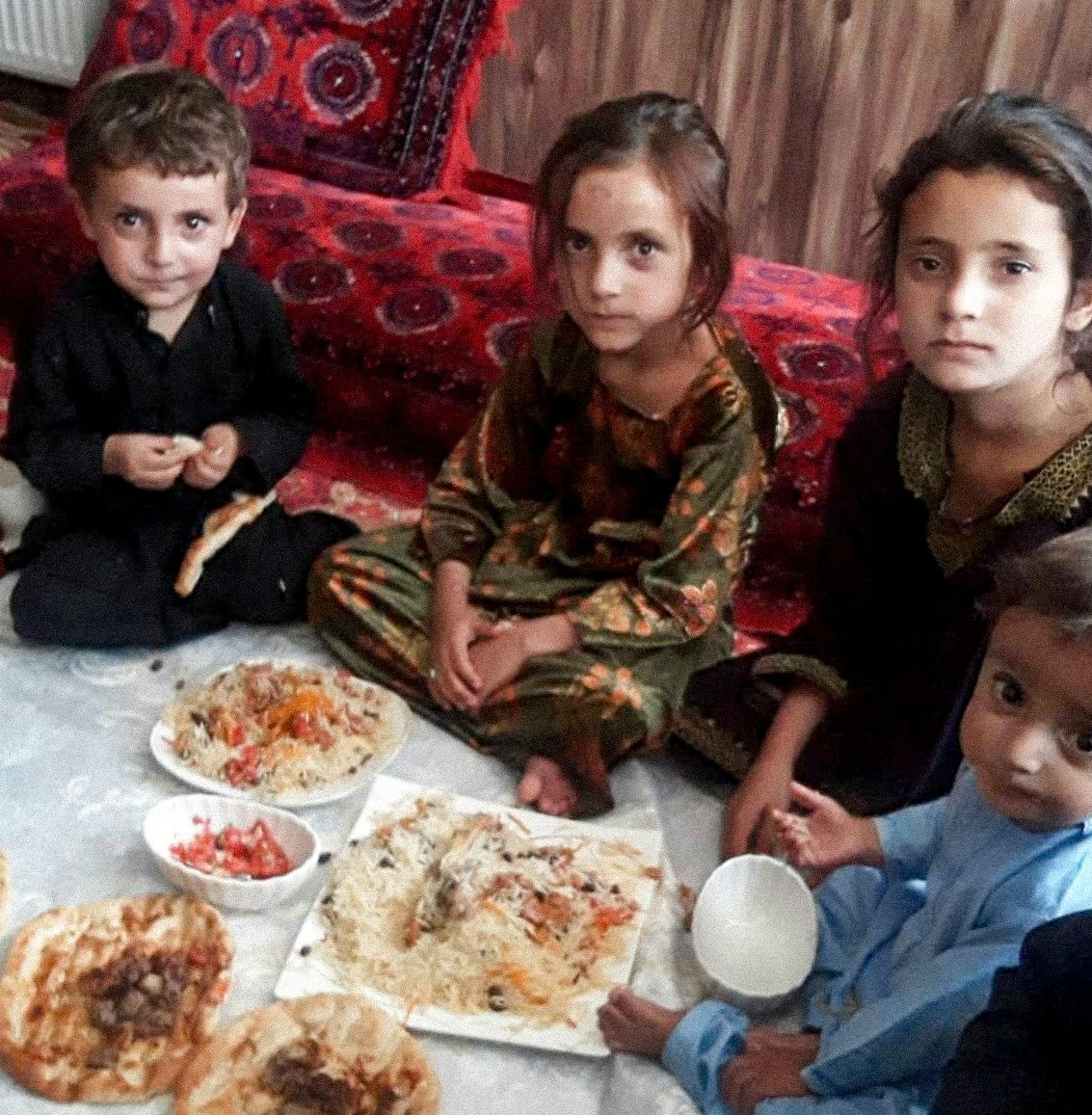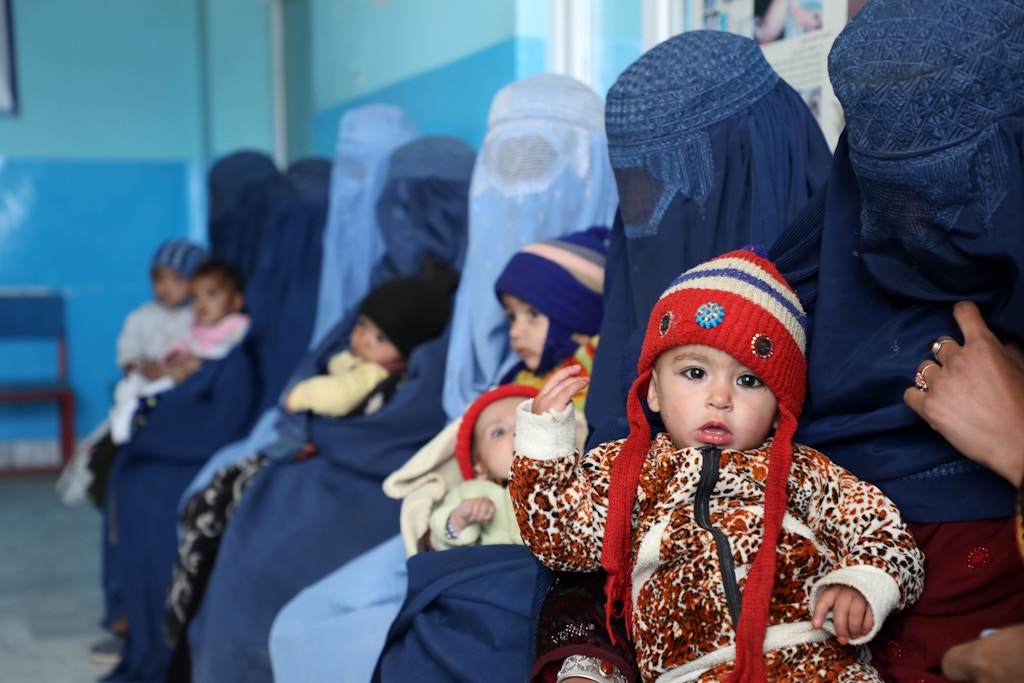A network of safe houses across Afghanistan is set to close them within weeks, as the Christian charity running it since the fall of Kabul has run out of funding.
The Afghan Liberty Project, which pulled together safe housing for hundreds of Afghans at risk of retaliation by the Taliban for working with the U.S.-backed government, has informed its residents of the deadline, according to an Afghan man who, along with his family, now faces an uncertain future. A former soldier in the Afghan army whose job was to defuse explosive devices, he asked to go by “Abdul” for his family’s protection. The shuttering was confirmed by the organization’s founding director, Ryan Mauro.
“Fundraising dried up,” said Mauro in a direct message. “There was a lot of interest in the beginning, but then it declined and ended altogether as Afghanistan left the headlines. We gave a minimum of 3 months advance notice (usually more) of our financial situation to all the Afghans we helped so they could have time to prepare.”
The Afghan Liberty Project was primarily organized to assist Christian Afghans, of whom there were more than 10,000 a year ago, and Jewish Afghans, of whom there were very few, though it has also worked to help Muslims who are at risk because of their work with NGOs or the NATO-backed government. Abdul, a Muslim father of four children, ages 3 through 9, said that his family was accepted into the safe houses with no religious test. To maintain the safe houses, he said, they need about $8,000 a month.

Four children of a family now facing imminent eviction from a safe house are seen eating a meal provided by the Afghan Liberty Project in Kabul, Afghanistan in 2021.
Photo: Courtesy of the Afghan Liberty Project
The news comes amid reports that up to 90 percent of Afghans applying for entry into the United States on humanitarian grounds are being rejected by American authorities.
That lack of concern from the U.S. government, the media, and the American people reflects a deep-seated prejudice against Afghans, even those who served alongside American troops or civilians.
“There’s definitely a sentiment out there that Afghanistan is so backwards and ‘lost’ that it isn’t worth trying anymore,” said Mauro. “One of the first questions I sometimes get is ‘You aren’t helping bring them to America are you?!’”
Mauro said that more focus on the plight of those at risk is worthwhile but will also produce a backlash. “More attention would help the cause,” he said, “especially if the attention was geared towards how almost every civilian can save a life with a tiny donation, but it won’t come without loud complaints from people who see Afghans as terrorist-sympathizing cave-dwellers who like to kill each other.”
The depth of U.S. ambivalence to the misery we’ve produced in Afghanistan has been neatly encapsulated by the Biden administration’s brazen seizure of the foreign currency reserves of the Afghan central bank. The U.S. helped construct the bank and offered to hold the reserves — totaling $7 billion — in an account in the Federal Reserve Bank of New York. The reserves were used like those of any central bank: to stabilize the currency, fight inflation, and balance out import and export payments. When Kabul fell to the Taliban, U.S. authorities stole the funds, leading to complete paralysis of the Afghan economy. Banks held on to cash in accounts, paychecks couldn’t clear, imports halted, and inflation spiraled out of control. Eventually, the Biden administration declared that it would use half of the stolen funds to pay a judgment won by a small handful of relatives of the victims of the 9/11 attacks while continuing to sit on the remaining half. The U.S. has also pressured the European Union to freeze the $2 billion in reserves it has been holding and has leaned on the World Bank and International Monetary Fund to halt projects and block funding.
Instead, the U.S. has sent a small amount of humanitarian aid to Afghanistan, much of which is consumed by the inflation caused by the U.S. seizure of the central bank’s funds. The result has been a staggering migration crisis, with more than 1 million people fleeing to Iran to avoid starvation, displaced internally, or dying. Infant mortality and malnutrition have skyrocketed. Up to 95 percent of Afghans aren’t getting enough to eat, according to the United Nations.

Afghan children experiencing malnutrition are seen with their mothers awaiting treatment in Kabul, Afghanistan on January 16, 2022.
Photo: Sayed Khodaiberdi Sadat/Anadolu Agency via Getty Images
Abdul guessed that there had been around 400 people holed up in the project’s safe houses. Mauro said evictions have since brought the number down to around 150, and about 75 of those can hold on for another month given the current state of the finances. If more money comes in, he said, he can extend their stays.
Adbul said that he and his family were able to survive the winter with the help of blankets, a kerosene heater, and care packages sent by the Afghan Liberty Project. Around four months ago, for security reasons, his family switched safe houses, and they now stay in one room both day and night. The children can’t leave for school or to play during the day.
“For me it’s like a prison,” said Abdul, adding that his wife is riddled with depression and anxiety. The prison is preferable to the alternative, he added. “They want to torture me and kill me, and then they will say to the media, ‘We killed an ISIS person,’” he said.
It’s not an idle concern. Abdul served in an Afghan army battalion under Capt. Ihsanuddin Zadran. Abdul’s job, along with Zadran’s, was disposal of explosives, and he shared training certificates and photos of himself and Zadran working with robotic disposal units. Abdul would guide the robot to the IED — improvised explosive device — and study the bomb through its camera, then approach it with a bomb suit and disarm it. “We disposed of so many IEDs,” he said. “It was so scary.”
Zadran was taken from his house during a Taliban raid in October. His body, showing signs of torture, was dumped back there three days later, according to social media posts reviewed by The Intercept. “My heart still breaks for him,” said Abdul.
Meanwhile, an earthquake in Afghanistan this week killed more than 1,000 people; three of them, said Abdul, were cousins of his.
Abdul is still holding out hope for a last-minute surge of support, while attempting to find ways out of the country. Mauro said that those in the safe houses have been making preparations to the extent they can. “Some have fled to other countries or found family and friends to stay with. Some are going back to their previous residences where they are scared because it’s known in the local neighborhood that they helped fight the Taliban. A majority, though, are looking at homelessness, starvation and possible arrest, torture or murder at the hands of the Taliban and their supporters,” he said. “It’s definitely one of the most painful and discouraging experiences in my life.”
"Shut" - Google News
June 23, 2022 at 11:16PM
https://ift.tt/50ExWOJ
Network of Safe Houses in Afghanistan to Shut Down as Funding Dries Up - The Intercept
"Shut" - Google News
https://ift.tt/VBwfbFN
https://ift.tt/hQNODgW
Bagikan Berita Ini















0 Response to "Network of Safe Houses in Afghanistan to Shut Down as Funding Dries Up - The Intercept"
Post a Comment